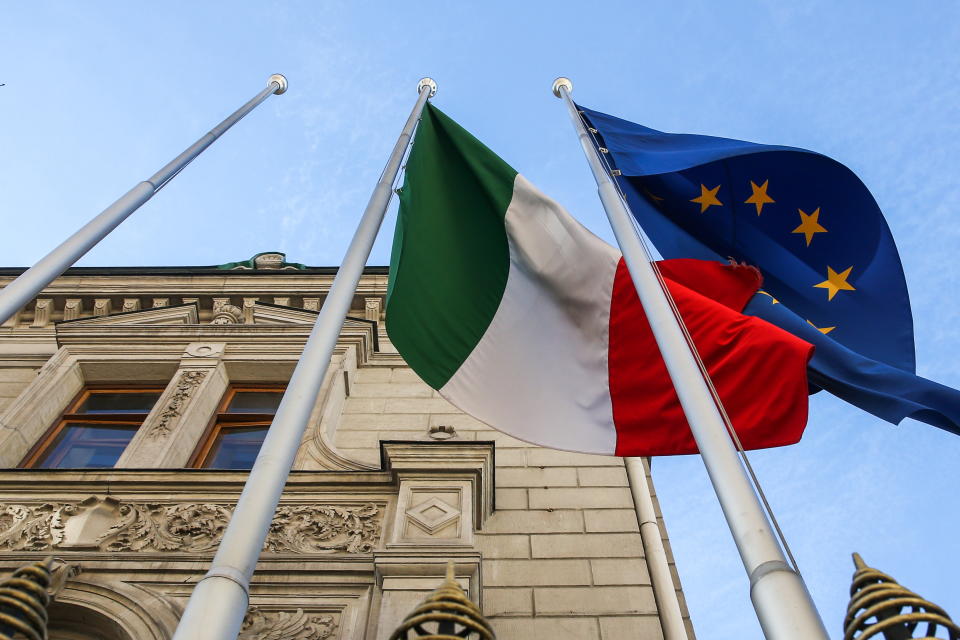Another recession has officially arrived in Europe
A new recession has arrived in Europe.
Italy’s economy officially slipped into a shallow recession in the last six months of 2018, according to new figures from the country’s national statistics bureau, ISTAT. And the rest of Europe performed poorly as well, according to fresh data from Eurostat.
Italy’s economy shrank by 0.1% in the third quarter compared to the second quarter. And then it slumped again by 0.2% in the fourth quarter. Two consecutive quarters of economic contraction is formally considered a recession.
Eurostat data was also discouraging, showing the 19-member eurozone bloc experienced economic growth of just 0.2% in the final quarter of 2018, steady with the third quarter. But that’s a far cry from the 0.4% growth in the first two quarters of the year.
This latest round of economic reports, combined with some weak statistics in early 2019, bodes poorly for the eurozone as a whole.
“It is likely that the 2019 growth forecast [from the European Central Bank] will see a substantial downgrade in March when the new staff projections are released,” warned Bert Colijn, a senior eurozone economist at ING.

Germany, France and Italy are the three largest economies in the eurozone. Germany was also weighing down the bloc as the domestic car and manufacturing sector struggled with rising trade tensions and emissions-testing problems.
“On a country basis, Germany and Italy have been a drag to the rest of the eurozone,” said Florian Hense, an economist at Berenberg bank. He blamed a range of issues, including US-Chinese trade tensions, Brexit risks and Italy’s budget standoff for some of the overall economic weakness.
“This has caused the eurozone business cycle to slow down. Sentiment has turned dimmer and the risk is that negative animal spirits begin to spiral further downward, dragging the eurozone into a serious, protracted downturn,” he said.
The International Monetary Fund (IMF) slashed its forecast for economic growth in 2019 and 2020 last week, blaming weakness in Europe and some emerging markets. It warned that a failure to resolve global trade tensions could further destabilise a slowing global economy.

 Yahoo Finance
Yahoo Finance 